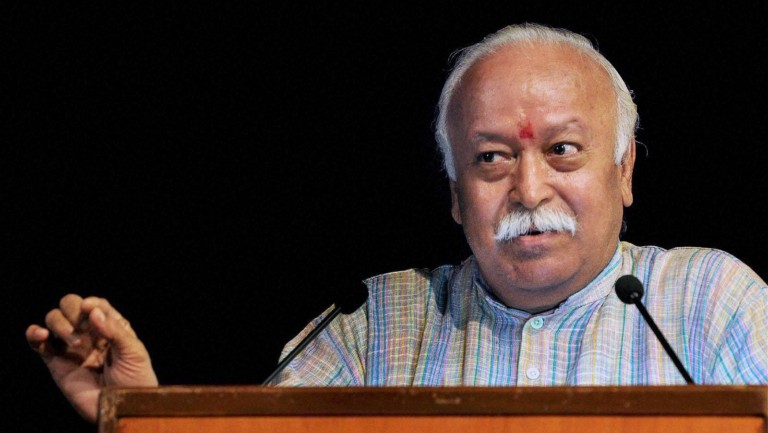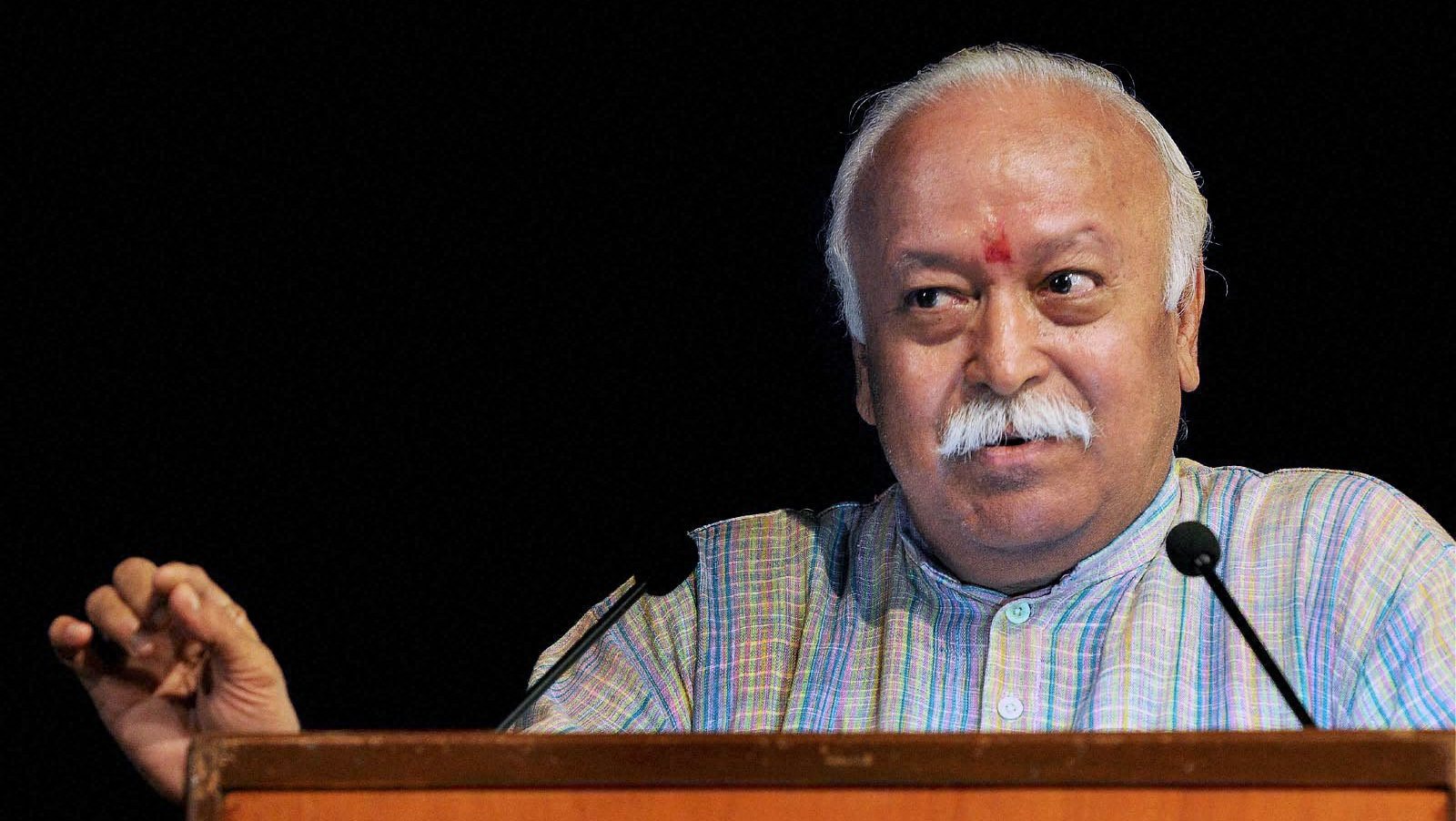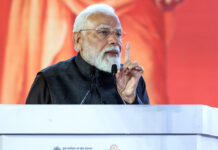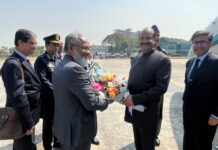
NAGPUR (MAHA): RSS chief Mohan Bhagwat Thursday demanded a law to enable construction of Ram temple in Ayodhya, saying it was necessary for “self-esteem” and to usher in an “atmosphere of goodwill and oneness”.
In his customary Dussehra address to the Sangh cadres at the RSS headquarters here, he also referred to the ongoing Sabrimala row, saying the Supreme Court verdict has not taken into consideration the nature and premise of the tradition and it has led to “divisiveness” in the society.
During the 80-minute speech, Bhagwat spoke on various other issues like “urban Maoism” and the need to strengthen the country’s borders.
Nobel Prize winner and social activist Kailash Satyarthi was the chief guest on the occasion.
The RSS chief said the sangh has been associated with sentiments of crores of people in the efforts for construction of a magnificent Ram temple at the birthplace of Lord Rama, who is the personification of life energy of the nation and icon of upholding the dharma.
“The construction of the temple is necessary from the self-esteem point of view, it will also pave the way for an atmosphere of goodwill and oneness in the country,” he said.
“The ‘janmabhoomi’ (birth place) is yet to be allocated for the construction of the temple although all kinds of evidence have affirmed that there was a temple at that place (in Ayodhya),” Bhagwat said.
He said “politics is delaying the construction of Ram Mandir” and that it is in “nobody’s interest to test the patience of the society without any reason.”
The Ayodhya case is currently before the Supreme Court and the next hearing is scheduled for October 29.
“There is an obvious game plan of a few elements to stall the judgment (of the Supreme Court) by presenting various newer interventions in the judicial process,” Bhagwat said.
“This matter of national interest is being obstructed by some fundamentalist elements and forces that play communal politics for selfish gains,” he said.
“Despite such machinations, the decision on ownership of the land should be expedited and the government should clear the path for the construction of the grand temple through an appropriate and requisite law,” the RSS chief said.
On the Sabarimala row, he said, “questions such as why only the Hindu society experiences such repeated and brazen onslaughts on its symbols of faith, obviously arise in the public’s mind and lead to unrest.”
He added, “The situation arising out of the recent (Supreme Court) verdict on Sabarimala temple shows a similar predicament. The nature and premise of the tradition that has been accepted by society and continuously followed for years together were not taken into consideration.”
On September 28, a five-judge Constitution bench of the Supreme Court, headed by then chief justice Dipak Misra, lifted the centuries-old ban on the entry of women of menstrual age into the shrine located in Kerala.
The iron gates of the temple opened Wednesday for the first time since the court order, but none from the “banned” age group could make it to its hallowed precincts amid a welter of protests and violent clashes.
“The verdict has given rise to unrest, turmoil and divisiveness in the society in place of peace, stability and equality, the RSS chief said, referring to the apex court order.
“The version of heads of religious denominations and faith of crores of devotees was not taken into account. The plea by a large section of women, who follow this tradition, was not heard too,” Bhagwat said.
“Decisions taken without considering all aspects and patiently creating mindset of the society will neither be adopted in actual practice nor will they help in creating a new social order, in tune with changing times and positions,” he added.
Bhagwat also hit out at Maoism, saying it has always been “urban” and the “neo-Left” doctrine of urban naxals is to establish an “anti-national” leadership with blind followers solely committed to them.
In an apparent reference to the arrest of a number of activists by Pune police for their alleged links with Maoists, he alleged that “urban Maoism” was propagating falsehood and spreading hatred in society.
“These people (Maoists) take strength from the country’s enemies and always malign the nation wherever they go,” he alleged.
He said in the last four years, a specific tone has been given to agitations originated in some undesirable incident in the society, old and new issues bothering different sections of the society and long-standing or emerging demands.
“The selfish power hungry politics with sheer disrespect for the social harmony, legal and constitutional discipline and with an eye on votes in the upcoming elections have been apparently clear behind these machinations,” he charged.
“But this time an atmosphere of divergence, separatism, violence, acerbic hatred and going to the extent of fuelling anti-national sentiments is being created by exploiting these grievances,” the RSS chief said.
The leading faces of the groups from whom the slogans like ‘Bharat tere tukde honge’ (India, you will be torn into pieces) emanated, have been at the forefront with their provocative speeches in such incidents at some places, he said.
When violent activities in remote forest areas were dealt with firmly, those leading and abetting violence were seen at the forefront of these agitations as votaries of urban naxalism, he said.
Bhagwat also called for securing the country’s borders, strengthening the armed forces and focusing on internal security.
Without naming Pakistan, he said attacks on borders have not stopped despite a new government taking over (there).
Noting that India always stood for peace and brotherhood, he stressed the need to maintain a balance between strengthening armed forces and raising their morale and at the same time propagating peace with neighbors.
The country cannot be assured about its security without the total self-reliance in the field of defense production even while continuing with multilateral exchanges wherever necessary, Bhagwat said, adding the pace of national efforts in this direction has to be accelerated. PTI






